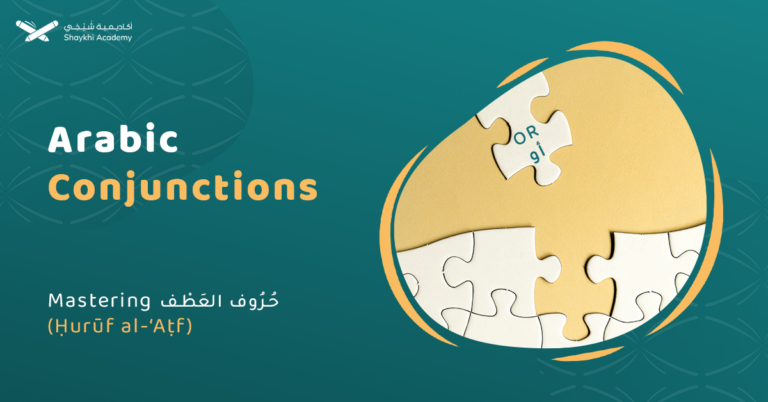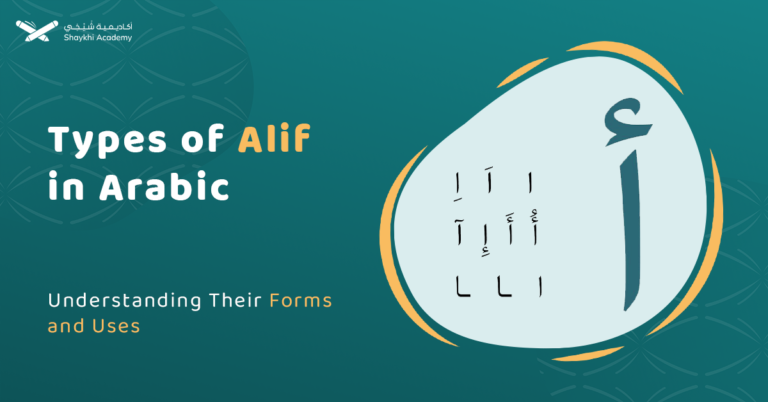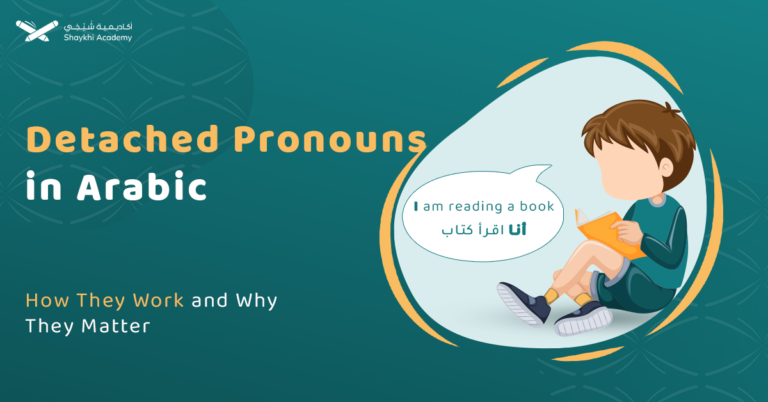You may ask yourself: how long does it take to learn the Quran? There is no single answer to this question, as the learning journey is influenced by various factors. Learning the Quran is a deeply personal journey that varies in duration depending on numerous factors like age, dedication, and learning environment. While mastering recitation with Tajweed may take up to a year, memorization and understanding could span several years, especially if pursued with quality and reflection. Ultimately, the journey is more about consistent progress and sincere intention than racing against time.
In this article, we present different scenarios for learning the Quran, along with estimated timelines for each. We also explore the factors that influence the learning process, and the challenges you might face, and suggest some solutions to help you overcome them. Keep reading for deeper insights!
How Long Does It Take To Learn The Quran?
Learning the Quran in all its skills takes 3-4 years for consistent learners to reach the advanced level of Quran mastery in recitation, applying Tajweed rules, memorization, and understanding the meaning with basic practice.
The journey starts with learning how to read the Quran with Tajweed basics. It’s expected to take about one year. Then, learning goes in parallel between understanding the meanings of the chapters and memorization, which is expected to take three years in the ideal case starting with the short chapters and then taking one page daily.
The following are detailed suggested plans for learning every skill based on its estimated timeline with some important tips to consider.
1. How long does it take to learn how to read the Quran?
Learning how to read the Quran from scratch till mastering recitation with Tajweed rules takes from six months to one year. Usually, I start with Noor al Bayan to teach the non-native Arabic students the Arabic sounds with all possible shapes followed by the basics of Tajweed practical rules, i.e., Laam Sakinah, Noon Saakinah and Tanween, Meem Saakinah, Madd rules, and Qalqalah for specific letters. In each phase, I provide the students with Quranic examples focusing on the rules we have studied. Also, I cover the advanced practical rules like Sakt or the like in brief. Finally, I provide a reasonable number of classes for mere practice on full Quranic chapters. In case I find one rule not practiced well in different positions, I review this rule specifically.
Fortunately, Shaykhi Academy provides many articles supporting Quran tutors and beginners to learn Quran recitation and practical Tajweed rules. Following is a selection of these articles:
- Tajweed for Beginners: How to Learn to Read Quran With Tajweed?
- Tajweed Apps: 20 Best Apps to Learn the Quran with Tajweed
- Noorani Qaida with Tajweed Rules – Full Guide
- Tajweed For Kids – Top 6 Main Tajweed Rules!
- 5 Tajweed Books For Kids With Their Advantages and Disadvantages Explained!
2. How long does it take to learn the Quran by heart?
Learning the Quran by heart takes 3-10 years based on many factors controlling the learner and the invironment. For more effective memorization experience, learning the Quran by heart should be accompanied by the following:
- Consider the meaning: Learn the meanings of the verses to be memorized besides practicing their messages in daily situations. This way, the Muslims fulfill the rights of the meaning and fix both the Quran’s words and meanings in their hearts.
- Start with Al Fatihah & short chapters: Memorization should start with surat al-Fatihah and then focus on the short chapters known as [al-Muffasal]–starting from surat an-Naas till surat Qaaf–since their meanings are critical in Muslim life.
- Balance in Quantity: It’s important not to bother kids with excessive amounts of memorization and to keep them motivated by a variety of activities and games.
By tracing the behavior of the Prophet’s companions in learning the Quran by heart, we find the following examples:
- Abdullah ibn Abbas narrated that he was ten or 13 but only memorized only four ajzaa from the Quran: “Allah’s Apostle died when I was a boy of ten years, and I had learnt the Muhkam [from surat an-Nas till surat Qaaf].” [Sahih Al Bukhari]
- Omar ibn Al-Khattab finished memorization of surat Al-Baqarah in 12 years.
This illustrates that Quran memorization for companions prioritizes deepening the meanings of the Quran in the heart and translating them into actions.
For more plans and details, refer to this article: Best Quran Memorization Timetable And Schedule: Your Guide For Managing Your Quran Memorization
3. How long does it take to learn the meanings of the Quran?
Learning the Quran meanings by reading from a brief tafseer book takes 3 years if the learner reads one page daily with one day off per week for a make-up plan. Through this plan, the learner can add memorization in parallel with learning the meanings. To illustrate, set a page to take, read its simple tafseer to understand, reflect on these meanings and think how to practice them, and finally memorize this page.
This plan is suitable for the aged people or those who find it hard to memorize the Quran by heart. Islam opens the gate of hope for those who want to join the people of the Quran by setting the main criteria of understanding and practicing, not merely memorizing the words.
It’s important to note that understanding the Quran and practicing its messages is an individual obligation while memorizing the Quran is a communal obligation.
What Are The Factors Influencing The Time It Takes To Learn The Quran?
There are many factors influencing the time you take to learn the Quran. As humans, we must understand the differences between individuals so that learners don’t burn themselves by the fire of unhealthy comparison. The following are important factors to consider while learning the Quran:
- Sincerity and righteousness: Showing off and committing sins are a huge barrier to effective learning of the Quran.
- Age of the Learner: Consider the age factor so that you seize opportunities and keep optimistic as well.
- Cognitive skills: Not all people are the same. Fortunately, Allah knows about the effort you exert regardless of the result you achieve.
- Quality of learning time: It’s not about number of hours; rather, it’s about how you consume the time of learning.
- Motivation & Environment: Keep motivation by renewing the intention and making the Quranic environment attractive for your learners so that they love it and learn easily.
- Quality of Instructions & Feedback: Take care of feedback and follow up for better results in learning the Quran.
Thus, by considering sincerity, the age of the Quran learner, their personal skills, the quality of time they allocate to Quran learning, level of motivation, the type of environment, and the nature of feedback received, Quran learners can easily accept the differences between each other and lead a healthy competition.
What Are The Challenges You May Face In Learning And How To Overcome Them?
There are many challenges facing me or my students in learning the Quran and it’s common to face learners in general. Here is a group of these challenges and how to overcome them:
1. Perfectionism: The All-or-none fallacy
One of the major challenges I face in learning is perfectionism. I’ve expected myself to perfectly learn and memorize all the time, with no mistakes or deductions in grades, leading me to evaluate my progress in an all-or-none style. This results in feeling disappointed, lacking confidence, fearing mistakes, and underestimating my skills.
To overcome this challenge, parents and Quran tutors should support their learners–especially kids–by keeping balanced in evaluating them with no excessive praise or punishment. It’s important for them not to be rushed up by the skills of the learners or their initial enthusiasm to the extent of overloading them with curricula!
2. Distractions
The top challenge facing both learners and tutors is our modern world full of distractions. After a few minutes, the learner is easily distracted from the material or the class putting an extra load on the tutor to grasp their attention continuously.
To overcome distraction, the Quran class duration should be 30-45 minutes with adequate games and activities in between. The more interactive the class is, the less distracted is the learner.
3. Gap between the learner and tutor (emotional barrier)
One of the challenges facing the learners is that they feel alienated from the tutor because of the difference in culture and language. Thus, the tutor has to build trust finding topics in common to discuss and learn more about the challenges facing the Muslims in the West.
4. Barrier of language
Non-native Arabic speakers face the challenge of language in learning the Quran and Tajweed. To overcome this barrier, parents should early expose their kids to an Arabic learning environment and Arabic classes as well. Muslim identity is affected by the language they speak and learning Arabic is a communal obligation.
Shaykhi Academy provides an Arabic course for kids that can help you in this context!
5. Lack of motivation
Boredom is a common challenge that causes learners to lose sight of their goals over time, leading to a lack of motivation. To counter this, parents and tutors should emphasize the importance of intention at the start of each learning session by sharing a new Quranic verse or hadith and reflecting on its meaning. Additionally, highlighting the worldly rewards for those who learn the Quran—such as serenity, security, and protection from anxiety and sadness—can be very motivating.
In summary, Quran learners face a range of challenges, including perfectionism, distractions, emotional barriers, language difficulties, and lack of motivation. By recognizing these challenges and addressing them wisely, all involved can reap the benefits of the learning journey.
How Hard Is It To Learn The Quran?
Learning the Quran is easy for those who sincerely open their heart for its way and take it properly. Allah Almighty guarantees easy learning of the Quran’s meanings, words, and practice:
“And We have certainly made the Quran easy to remember.” [Quran (English interpretation of meaning), 54:17]
Thus, hardships may come at the beginning as a test for the learner or may come out of insincerity or sins or improper ways of dealing with the Quran such as focusing on mere words neglecting the meanings and practice.
Can I Learn The Quran In 1 Month?
Yes, you can learn the Quran in one month if you learn one juz’ daily. However, this way is not recommended since it overburdens you with a huge amount with no guarantee for quality or continuity. Also, it contradicts the companions’ behavior in learning the Quran.
Can I Learn The Quran In 3 Months?
Yes, you can learn the Quran in three months if you learn half a juz’ daily for two days and keep the third day to revise the Quran you memorized . This way is suitable for some people with specific situations–such as the need for leading people in tarawih prayer with no other substitute in the region–making it urgent for them to finish memorization quickly.
For more, read this article: How To Memorize The Quran In 3 Months?
Can I Learn The Quran In 6 Months?
Yes, you can learn the Quran in six months using one of the following suggested styles:
- ¼ juz’ daily
- ½ juz’ in one day and stop to revise it on the following day
For more tips about how to memorize in six months, read this article: Memorizing The Quran In 6 Months: Practical Guide
Is It Possible To Learn The Quran In 1 Year?
Yes, it’s possible to learn the Quran in one year if you learn two pages daily with one week off for revision after finishing every four ajzaa’. This also provides you with some extra days for compensation in case any exceptions happen. Read also: How To Memorize the Quran In 1 Year? – 10 Steps To Make A Better Experience!
Is It Possible To Learn The Quran In 2 Years?
Yes, it’s possible to learn the Quran in two years if you learn one page daily with a revision week after finishing every two ajzaa’. For more, read:
Is It Possible To Learn The Quran In 3 Years?
Yes, it’s possible to learn the Quran in three years by learning one page daily giving yourself extra days for revision and make-up compared to the two-year plan. Keep in mind that learning includes understanding the page from a brief tafseer book before its memorization.
What Are The Benefits Of Learning The Quran?
Learning the Quran guarantees Muslims countless benefits including the following:
- Protection from going astray and suffering: Allah Almighty says, “Whoever follows My guidance will neither go astray ˹in this life˺ nor suffer ˹in the next˺.” [Quran, 20:123]
- Security and happiness: Allah Almighty promises those who follow the Quran saying, “whoever follows My guidance – there will be no fear concerning them, nor will they grieve.” [Quran, 2:38]
- Countless rewards: Every letter of the Quran recited equals ten rewards.
- Guaranteed intercession for the people of the Quran, i.e., learning and understanding the meanings and following them.
- Higher grades in Paradise are based on the amount of Quran memorization.
Thus, Muslims should consider learning the Quran to benefit from this journey in this life and the hereafter.
Start Your Journey Of Learning The Quran With Shaykhi Academy!
Shaykhi Academy provides many courses helping both adults and kids in their Quran learning journey with native Arabic tutors. Following are some courses presented by the Academy:
- Quran Hifz And Memorization For Kids
- Online Tafseer Course
- Online Hifz Course – Quran Memorization Online Program
Why Choose Shaykhi Academy?
- Connect with highly qualified native tutors.
- Flexible scheduling to suit your busy lifestyle.
- Affordable classes tailored for all levels.
- Accessible from anywhere around the globe.
Discover Our Range of Courses:
- Arabic Noorani Qaida: Lay a solid foundation for Quranic studies.
- Online Quran Classes for Kids: Engaging lessons for lifelong learning.
- Tajweed Rules for Kids: Learn to recite with confidence.
- Quran Hifz for Kids: Step-by-step guidance to memorize the Quran.
- Quran for Adults: Introduce yourself to Quran reading and Tajweed rules.
- Online Arabic Courses: Master the language of the Quran.
- Islamic Studies: A wide range of topics related to Islam, including theology, law, Quranic studies, and Hadith.
Don’t Miss Out on Your Chance to Excel! Whether you’re a beginner or seeking advanced knowledge, Shaykhi Academy can guide you! Book your free trial now

Conclusion
To conclude, learning the Quran is an honorable journey with various paths to reach your goal. The duration doesn’t matter as long as you stay on track with sincere intention and a valid approach, focusing on both meanings and words. Remember that
“the acts most pleasing to Allah are those which are done most continuously, even if they amount to little.” [Bukhari and Muslim]














































